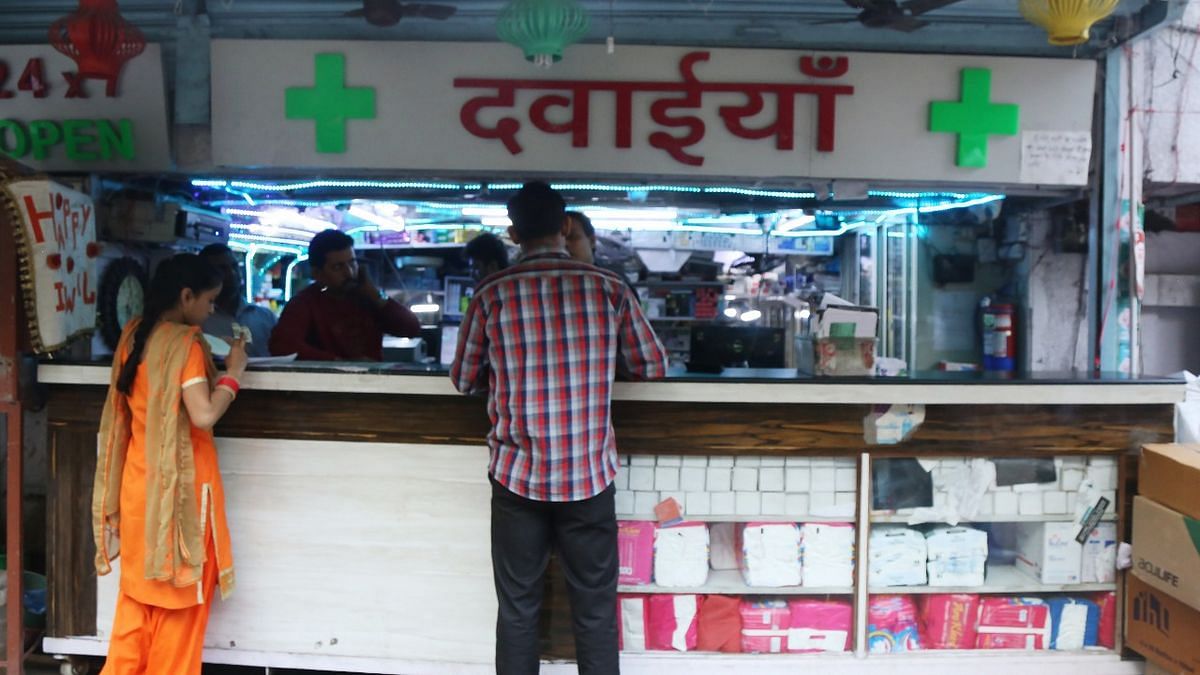
New Delhi: Pharmacists across the national capital are upset with the Delhi government’s advisory mandating CCTV cameras in all pharmacies by the end of July to curb illegal sale of dual-use and prescription-only drugs.
Dual-use medications are drugs that have therapeutic use but are also used for recreational purposes, misused and abused. For example, Tapentadol, an opioid-based painkiller, and Pregabalin, a medication widely used for managing nerve pain, has been increasingly abused for its sedative and psychoactive properties.
The government advisory follows a decision taken in a meeting held on 18 July under the 11th National Narcotics Coordination (NCORD) mechanism. The move is meant to stop the sale of Schedule H, H1, and X drugs—medicines that legally require a doctor’s prescription, and can’t be administered without proper medical supervision.
“It has been desired by members of the meeting that installation of surveillance cameras in all medical shops must be ensured as a measure to prevent the sale of dual-use medicines without any prescription,” reads the advisory issued by the Delhi Drug Control Department.
The move follows a citywide crackdown in June when the Drugs Control Department of Delhi seized over 160 samples of suspected cancer medications and found that many lacked proper documentation or bore suspicious markings.
While the health department maintains that the CCTV installation is mandatory, pharmacist associations insist they have not received any notification saying it is mandatory.
Speaking to ThePrint, Delhi Health Minister Dr Pankaj Kumar Singh said, “It is mandatory. Everyone will have to follow it. What action will be taken against those who don’t comply will be decided later.”
However, Sandeep Nangia, president of the Retail Distribution Chemist Alliance (RDCA), contested the nature of the advisory. “This is an advisory, not a mandate,” he said. “If it’s mandatory, notify it. Make a rule, a provision, whatever you want, but follow a systematic process.” Nangia said he has forwarded the advisory to RDCA members, leaving the decision to them. “I haven’t asked anyone to not comply,” he clarified.
He also pointed out the financial strain the directive could put on small-scale chemists. “There are pharmacies in Delhi that barely manage monthly sales of Rs 5,000 or Rs 12,000. How can they afford CCTV systems that require not just cameras but a full setup with monitors and storage?” he said.
“Why doesn’t the government install cameras in every corner of the country? That is also needed. Whatever they can’t do, they make us do,” Nangia added.
According to the Delhi government’s department of health & family welfare, there are around 30,000 registered pharmacies in the capital. Sub-Divisional Magistrates (SDMs) have been assigned responsibility for monitoring and enforcing implementation. “Almost 40 percent shops have already installed CCTV cameras,” Singh told ThePrint.
The recent directive is not the first of its kind. In July 2023 too, the Delhi government had ordered pharmacies to install CCTV cameras to combat drug abuse among minors. That order was followed by a circular from the Delhi Commission for Protection of Child Rights (DCPCR), which sought district-wise data on pharmacies selling Schedule H and X drugs without surveillance systems.
According to the latest advisory, pharmacies must ensure that Schedule H, H1, and X drugs are only sold upon presentation of a valid prescription from a Registered Medical Practitioner (RMP). These medicines are listed under the Drugs and Cosmetics Rules, 1945, and are marked with an “Rx” symbol and a warning label.
The list includes over 500 drugs including antibiotics, antidepressants, anti-diabetics like metformin, and psychiatric drugs like risperidone and alprazolam.
Despite regulatory frameworks, enforcement remains patchy, leading to concerns over drug misuse, rising antimicrobial resistance, and increasing health risks.
“We are not against surveillance,” Nangia said. “But it has to be fair. If the government wants compliance, it should either subsidise the setup or provide it.”
“When this directive came, we wrote to the Commission for Protection of Child Rights, telling them it’s simply not feasible,” said Rajeev Singhal, general secretary of the All India Organisation of Chemists and Druggists (AIOCD). “You can’t expect this in every corner of the country—we just don’t have the infrastructure. It’s not practical.”
Singhal suggested that instead of mandating CCTV cameras, the authorities can strictly collect records they already maintain for Schedule H1 drugs. “We’re willing to submit them to the drug department regularly and diligently,” Singhal told ThePrint.
As per Rule 65 of the Drugs and Cosmetics Rules, 1945, chemists are legally required to maintain a register documenting each sale of prescription-only medicines, including the name and address of the prescribing doctor and patient.
For Schedule X drugs, which are classified under the highest level of regulatory control and generally include psychotropic substances, the rules are even more stringent. These drugs must not be sold without a valid prescription, and their sale, storage, and documentation are subject to close scrutiny to prevent potential abuse or diversion.
(Edited by Viny Mishra)
Also read: Punjab’s new drug problem is pregabalin. Cheap, unchecked, gives a ‘gentle high’
Source link

